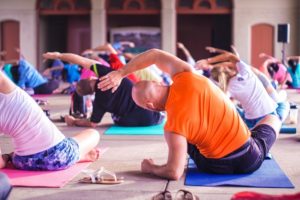Sports Medicine Physical Therapy
We help athletes of all levels shore up weaknesses, decrease sports injury risk, and build strength and power. OneRehab is your solution to all sports medicine physical therapy needs.
OneRehabs Sports Medicine
Sports medicine is also known as SEM or sports and exercise medicine. It deals with physical fitness, treatment and the prevention of injuries relating to sports and exercises. It helps you to participate in sports effectively and safely.
Our sports medicine therapists address various issues, including trauma, dislocations, fractures, and sprains. We also design a wide-range treatment program for patients with chronic conditions from overuse, such as degenerative conditions and tendonitis.
Participating in sports such as football, golf, tennis, and many others can lead to injuries. Through a combination of exercise physiology, specific sports science, orthopedics, and sports psychology, we create a holistic program that helps patients recover from injuries.
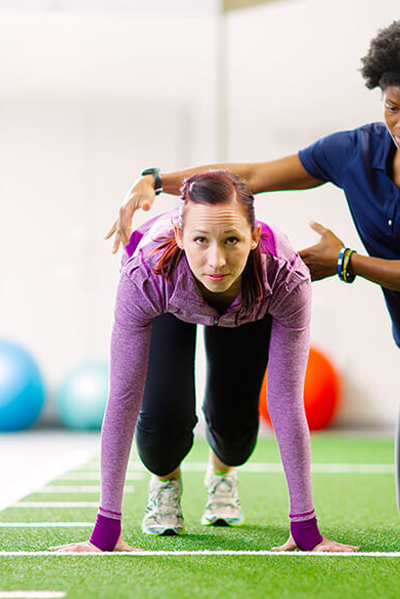
Patient Wellbeing is Our Primary Concern
Sports Medicine
- Path to D1 Program
- Sports-Specific Performance Training
- Concussion Management
- Baseline Testing
- Return to School/Work
- Return to Play
- Wellness/Injury Prevention Education
- Physical therapy exercises
Path to D1 Program
Thousands of athletes dream of playing college football. Connecting with coaches can help athletes get recruited. Creating a successful pathway to the D1 program starts by having intense sports training. We help athlete students with self-evaluation where they understand their strengths and areas they can improve on. We have a robust sports medicine department that can help athletes catch the eye of recruiting managers.
Additionally, we get the athletes prepared for the demand of the game. College sports require commitment; we ensure we test the athlete’s resolve to make sure they will be committed. Our training program creates discipline through training sessions at odd times and early practice.
We also focus on individual competitiveness and improving skills, making it possible to join the D1 program. We also project the athlete’s ability to enhance skill once you enter the program as a fresher.
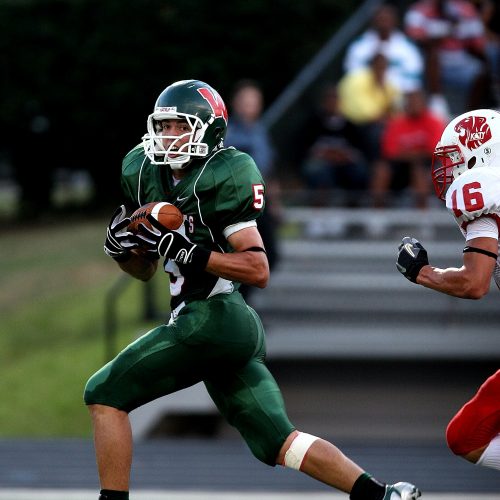
Sports-Specific Performance Training
Today’s professional athletes are quite competitive. Our sports-specific performance training programs are multifaceted. They include specific elements that help improve performance. We prepare athletes in various sports by designing particular training programs suited to their field. If you are a gymnast, we can help with strength, balance, and flexibility training. If you are a runner, we can help with leg strength training to help jump obstacles, improving core strength, and other forms of exercise.
- Strength training and stabilization: It helps build healthy athletes less prone to injury, which increases performance capabilities. We also create a program designed for speed training. In it, we train effective training mechanics and technique.
- Injury Prevention: Sports-specific training delivers specific training required in each sport, which reduces the chances of injuries. We cater to each sport, whether gymnastics, running, parkour, and other professional sports. We also provide agility training, which improves on-field quickness. With this, athletes can quickly change direction, accelerate, or decelerate without getting injuries.
- Cardiovascular training: focuses on a player’s general well-being, thus improving performance.
- Functional flexibility: An athlete can produce optimal performance when their muscle and flexibility functions are fully maximized. We have a dedicated team that maps out an athlete’s joint and muscle range of motion. This information helps create a program that focuses on improving inflexibility and decreasing tightness.
- Balance and functional training: As an athlete becomes more aware of their body position in a three-dimensional space, they increase their balance. Balance is crucial to an athlete’s power, speed, and improved performance.
Concussion Management
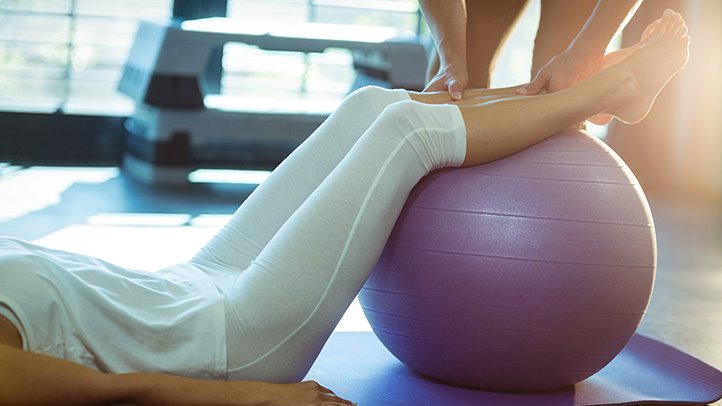
A concussion refers to an injury that occurs as a result of a blow to the head. It is a traumatic brain injury, and it affects brain function, though temporarily. It affects memory, balance, coordination, and concentration. Some can result in unconsciousness.
What are the Symptoms of a Concussion?
- Balance problems
- Anxiety
- Sleep pattern changes
- Blurry vision
- Concentration problems
- Dizziness
- Fatigue
- Lack of clarity or confusion
- Memory loss
- Headaches
- Irritability
- Vomiting and nausea
- Sensitivity to sound and light
- Mood changes
There are serious consequences when an athlete has a concussion. Under our sports medicine physical therapy, we help in concussion management. Our experts are experienced in handling concussion cases, where we evaluate patients regularly to determine if they are fit to return to the field.
Baseline Testing
Failing to deal with a concussion can lead to long-term damage. Concussions also require immediate care and attention. The most significant concern with concussions is the resulting energy deficient in the brain. When there is a reduction of this energy, the brain becomes susceptible to damage and additional trauma. If a second concussion occurs, as a result, a person can experience a severe brain injury, or a fatality can occur.
In concussions, symptoms do not indicate brain recovery. The only way a specialist can know if the brain has recovered is by comparing the current function with how the patient was before the injury. This is known as a baseline test.
Our skilled sports medicine therapists can help create a Baseline Test before a concussion occurs. With this information, a physician can analyze whether the player can go back to the field with more accuracy.
Return to School/Work
Making a return to work or school after a concussion depends on how you perform on the baseline test. Sports medicine physical therapy is crucial to gradually ease an athlete into thinking, working, or doing school assignments.
Return to Play
The first few days after the injury, one is only allowed to do light physical activities. After all the symptoms go, we can slowly discuss the best course of action to get back the patient to sporting activities. Resuming to play quickly is risky as it increases the chances of another injury.
Wellness/Injury Prevention Education
Injury prevention is crucial in sports medicine. Using protective gear when sporting and following the rules of the game prevents injuries. Regular training and exercising for athletes improve strength and balance, which can prevent incidences of concussion. At OneRehab sports medicine center, you can gain access to concussion experts whenever you need them. We also provide education to teams to help avoid this injury.
Sports Medicine Physical Therapy Exercises
If you are already searching for sports physical therapy near me, you are on the right track towards professional performance. Physical therapy is an essential component in promoting healing and preventing injuries for professional athletes. Notably, spine and sports physical therapy can benefit people of all ages with limited mobility or functionality.
When you want to join a competitive team, you can engage us to receive extensive sports physical therapy exercises. Below are some of the exercises we will put you through to boost healing or help attain a top athlete form. However, please note that this is not a complete list of all the exercises you can perform.
Core Exercises
Whether running, jumping, swimming, throwing, or kicking, your core is always actively involved and engaged. Core muscles are crucial for stabilizing your spine and the pelvis. It is also vital in producing and transferring energy from the center of the body to the limbs.
For this reason, having a strong core gives you stability allowing you to maximize your power output. You can also do complex athletic movements requiring balance, technical skills, and coordination with a strong core. Advanced physical therapy and sports medicine focus on helping you strengthen the core to address any weak areas reducing your injury risk.
When designing an exercise program, our physical therapists ensure they include such exercise to optimize your performance. Such exercises can consist of the plank, low-plank, sit-up, Hi-lo, mountain climbers, and other exercises to engage and strengthen the core.
Shoulder Exercises
Are you training to be a pitcher, basketball shooter, or quarterback? You need shoulder exercises. It is important to focus on this part of the body to avoid tightness, leading to tears, rotator cuff strains, or shoulder impingement.
When you come to our sports medicine physical therapy center, you will have a personalized treatment program to improve scapular stability. Such exercises include bear crawls, downward dogs for flexibility, dumbbells to increase strength, and shoulder TRX suspension for flexibility and strength.
Hip and Knee Exercises
As an athlete, you cannot ignore hip mobility. If you spend most of your time sitting when you are not training or competing, you risk rigidity. If you are in school or working an 8-hour desk job when not training, the hip flexors shorten, affecting your performance. Most physical therapy & sports medicine centers will put you on various hip mobility exercises if this is the case.
The hip joint contains over 15 muscles working together to achieve a full range of motion around the hip. Whether diving in swimming or jumping hurdles on the track, tight hips will affect your performance. Your training program can contain exercises such as scorpion stretch, hip flexor stretches, burpee spider push, lateral squat, and many others.
Apart from hip flexibility exercises, you also need to cater to your knee. Exercising your knees regularly helps build strength and flexibility in the muscles and joints. It is good to engage a sports medicine specialist before attempting some exercises. Additionally, sports medicine programs evaluate your gait and performance, determining areas where you need more help.
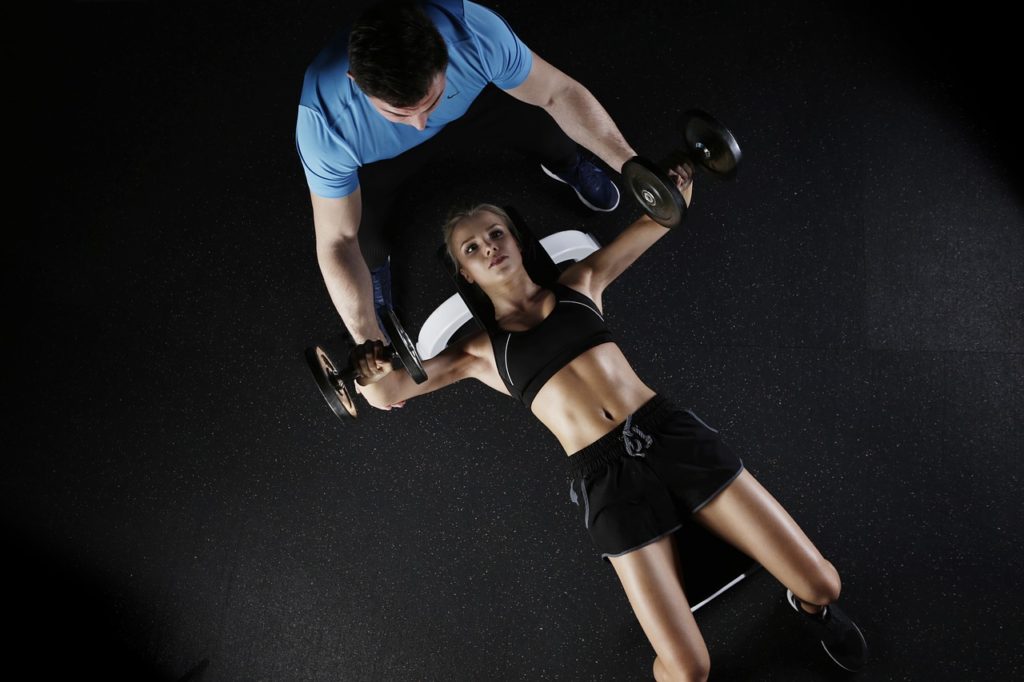
Ankle Mobility Exercises
As an athlete, whether the goal is to be an olympian or the best in the country, you must put in a lot of work when training. These exercises can strain the body due to its connected systems. However, introducing ankle mobility exercises helps the body connectivity, which leads to success in sports. You need flexible ankles if you are a swimmer, weight lifter, or football player.
At OneRehab multispecialty center, we will focus on helping you improve ankle flexibility. As a result, your ability to produce force and performance will improve. These exercises also prevent ACL injuries.
The more flexible the ankle is, the more the tendons, muscles, and ligaments can handle sudden movements that come with many sports. Our orthopedic and sports physical therapy services focus on exercises such as calf stretches, ankles mobility drills, foam rolling, and many more.
Thoracic Spine Mobility
The thoracic spine refers to the middle section of the vertebra between the lower back and the neck. It contains the rib cage and 12 thoracic vertebrae. The ability to move this part of the body affects your posture, which is crucial for sportspeople. Some sports can cause this area to be stiff, leading to injuries, pain, or reduced sports performance.
Choosing pro sports physical therapy helps address this issue. When you visit our clinic, we will assess all the vertebra movements and posture. The assessment involves checking the thoracic spine movements such as rotations, rib expansion, bending, extensions, etc.
Additionally, we can look at shoulder movements for your specific discipline, such as streamline if you are a swimmer. Your individualized treatment program can include exercises such as thoracic foam roll, tennis ball stretch, rib rolls, and others.

